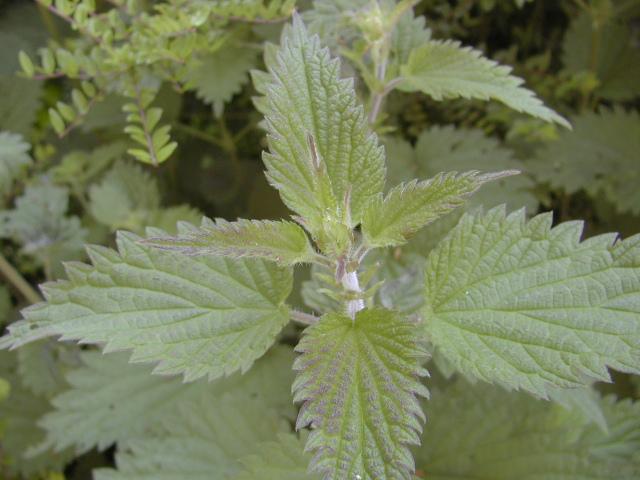Nettle
[size=75]From Wikipedia, the free encyclopedia [/size]
See text.
Nettle is the common name for any of between 30-45 species of flowering plants of the genus Urtica in the family Urticaceae, with a cosmopolitan though mainly temperate distribution. They are mostly herbaceous perennial plants, but some are annual and a few are shrubby.
The most prominent member of the genus is the stinging nettle Urtica dioica, native to Europe, north Africa, Asia, and North America. The genus also contains a number of other species with similar properties, listed below. However, a large number of species names that will be encountered in this genus in the older literature (about 100 species have been described) are now recognised as synonyms of Urtica dioica. Some of these taxa are still recognised as subspecies.
Most of the species listed below share the property of having stinging hairs, and can be expected to have very similar medicinal uses to the stinging nettle. The stings of Urtica ferox, the ongaonga or tree nettle of New Zealand, have been known to kill horses, dogs and at least one human.[1]
The nature of the toxin secreted by nettles is not settled. The stinging hairs of most nettle species contain formic acid, serotonin and histamine; however recent studies of Urtica thunbergiana (Fu et al, 2006) implicate oxalic acid and tartaric acid rather than any of those substances, at least in that species.
Species in the genus Urtica, and their primary natural ranges, include:
The family Urticaceae also contains some other plants called nettles that are not members of the genus Urtica. These include the wood nettle Laportea canadensis, found in eastern North America from Nova Scotia to Florida, and the false nettle Boehmeria cylindrica, found in most of the United States east of the Rockies. As its name implies, the false nettle does not sting.
There are many unrelated organisms called nettle, such as:


 A lot of these herbal teas contain nettle, which is an old folk remedy.
A lot of these herbal teas contain nettle, which is an old folk remedy. It is readily available in most health-food shops.
It is readily available in most health-food shops.